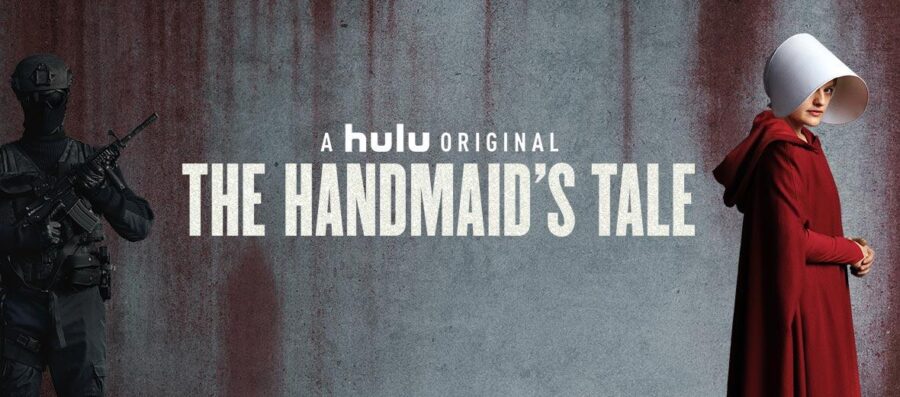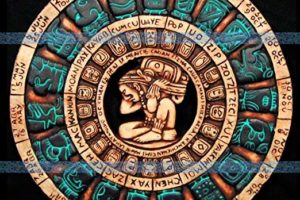Photo Credit: https://www.emmys.com/events/fyc/2017/the-handmaids-tale
The Handmaid’s Tale, a popular Hulu drama series, just won eight Emmy Awards, including the Primetime Emmy Award for Outstanding Drama Series. The series, which is based on the book by Margaret Atwood, follows the story of Offred, a handmaid, during a time where America falls under an extreme fundamentalist “Christian” totalitarian state of Gilead. In this dystopian society, women are enslaved and some are assigned roles of “handmaids,” where they are forced to bear children of the elitist class who are barren. They are forced into sexual slavery with their male masters, in order to become pregnant and bear children for their masters’ wives. The show is quite graphic, and I honestly wouldn’t recommend watching it. When I watched the first episode, I was quite disturbed, so much that I couldn’t watch anymore of it. Before they perform the rape ritual, they read Genesis 30:1-4 as the basis of their actions.
When Rachel saw that she was not bearing Jacob any children, she became jealous of her sister. So she said to Jacob, “Give me children, or I’ll die!” Jacob became angry with her and said, “Am I in the place of God, who has kept you from having children?” Then she said, “Here is Bilhah, my servant. Sleep with her so that she can bear children for me and I too can build a family through her.” So she gave him her servant Bilhah as a wife. Jacob slept with her, and she became pregnant and bore him a son.
It was quite disturbing when I saw how this extremist fundamentalist society misused Scripture to keep women in subjugation as a rationale for their oppression. When we actually look at the true whole story of Jacob and Rachel, we find out that this is not prescriptive behavior and not something to be modeled. Looking at the context of Genesis 30:1-4, this story is about a dysfunctional family. In Genesis 27-30, we see the story surrounding this passage. Jacob deceives his father, Isaac, to give Jacob his inheritance. Jacob’s brother, Esau, is enraged and tries to kill him. Jacob flees for his life and arrives in Paddan Aram, where he meets Rachel at the well, watering her flocks. He is captivated by Rachel’s beauty and proceeds to find out that they’re cousins!
He works for her father, Laban, and in exchange for seven years of labor, he asks his uncle for Rachel’s hand in marriage. In his obsession, he works so hard for her to the point where the seven years felt more like seven days. Yet, Laban deceives Jacob and on their wedding day, he instead gives Rachel’s older and less attractive sister, Leah, to Jacob! Jacob awakens after the wedding night, only to discover that he had slept with Leah and not Rachel. He must have been quite drunk from all of the wedding celebrations, or it was really dark in that tent! Shocked and infuriated, he asks Laban, “Why did you deceive me?!” Laban says that he can’t give the younger daughter to marriage before the older daughter. In addition, he says to Jacob that he would give Rachel to him for another seven years of labor. So Jacob marries Rachel a week later, and works for Laban seven more years. What a mess!
Leah desperately longs to be loved by Jacob. As the older, less attractive daughter, one can imagine the shame that she experiences. In her desperation, she cries out to God, and God opens up her womb and she bears four sons: Reuben, Simeon, Levi, and Judah. Still, Jacob never loves her. To make matters even more complicated, Rachel is barren and in her jealousy, she begins to hijack the entire situation. She gives her handmaid, Bilhah, as another wife to Jacob, so that she could vicariously bear children on her behalf. Bilnah bears Jacob two sons: Dan and Naphtali. Out of reaction, Leah becomes jealous again, and gives her handmaid, Zilpah, to Jacob as another wife, and she bears two sons: Gad and Asher.
Then, Rachel wants some of Leah’s son’s mandrakes (a fertility drug), so she said to Leah that Leah could have priority that night to sleep with Jacob in exchange for the mandrakes. So, Leah conceives once again and then bears Jacob two more sons: Isaachar and Zebulun; and then a daughter: Dinah. Rachel cries out to God, and she finally conceives and bears two sons: Joseph and Benjamin.
Wow, if that’s not a dysfunctional family, I don’t know what is! That’s why polygamy was not part of God’s plan or design. God designed marriage to be for one man and one woman, as he said in Genesis 2: 24, “That is why a man leaves his father and mother and is united to his wife, and they become one flesh.” Every instance of polygamy in the Bible ends up in bad news and lots of drama. That’s also why Paul said that an elder of the church had to be a man who only had one wife (1 Timothy 3:2, Titus 1:6).
It saddens and infuriates me to see how the depiction of this dystopian society of Gilead in The Handmaid’s Tale misuses Scripture. Beyond the show, it also worries me that those who are non-Christians and unfamiliar with the Bible will have a greater negative view of Christianity. Especially during this social-political climate where there are high tensions regarding women’s rights, I want non-Christians to see that this story about Jacob, Rachel, and Leah is an example of what not to do. The story reveals that living outside of God’s design for marriage causes familial strife. In the midst of this broken family, God still hears the cries of Leah and Rachel, and surprisingly answers their prayers. God is merciful and gracious to this family, and even uses this dysfunctional family for His purposes. It’s not because of their righteousness or their obedience to God’s design, but solely because of God’s grace. Jacob is one of the patriarchs of the Israelites, and Jesus comes from the line of Judah, one of Leah’s children.
Jesus is an advocate for women, breaks cultural barriers and norms, and serves and cares for women. During a time when women weren’t allowed to learn from most rabbis or Old Testament teachers, Jesus allows Mary to come and learn from him. He even says that Mary has chosen what is better (Luke 10:42) when Martha complains that Mary is not doing what is expected of a woman–being busy with the preparations of hosting Jesus. Here, Jesus radically shifts the paradigm of what is expected of women’s roles. Mary Magdalene was also the first witness of Jesus’ resurrection in John 20. Jesus appears to her first, and she is the one who tells the disciples that He was alive. Even in the epistles beyond Jesus, Paul continues to advocate for women in Galatians 3:28 as he says, “There is neither Jew nor Gentile, neither slave nor free, nor is there male and female, for you are all one in Christ Jesus.” Everyone has access to God’s gift of salvation, and everyone has value in God’s eyes. In this way, if we look at the whole of Scripture, we see how God affirms the value of women.





Leave a Reply
Your email is safe with us.